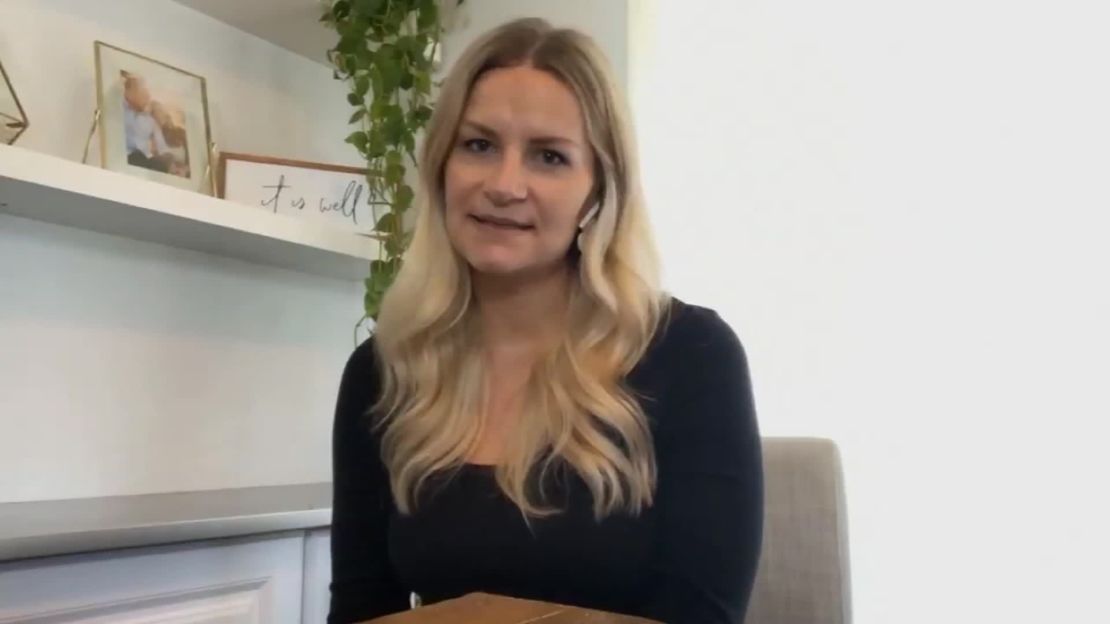Angela Primachenko was 27 years old, 34 weeks pregnant, and days into a fight against the coronavirus when she made the decision, with the advice of her doctors, to go into a medically induced coma. When she woke up, her belly was flat and her baby was 5 days old.
“That was emotionally unbelievable,” she told CNN. “It was just crazy to have to try to understand what happened the last 10 days, having to puzzle back together your life.”
Primachenko lives in Washington, a state that has gotten a lot of attention as the Covid-19 outbreak has grown in the US. It’s where the country’s first coronavirus case was announced on January 21, where the first coronavirus-related death in the US occurred, and where a nursing home saw dozens of deaths early on in the pandemic.

Primachenko lives far south of where those cases developed, along the state’s southern border in Vancouver, a suburb of Portland, Oregon.
Like many who have caught the coronavirus, her symptoms began with a cough that escalated to a fever that wasn’t going away, she recalled.
Primachenko, a respiratory therapist at Legacy Salmon Creek Medical Center, hadn’t been going to work and doesn’t know how she would’ve caught the coronavirus.
“She knew the risk,” said Oksana Luiten, her twin sister. “She took every precaution.”
Primachenko’s family encouraged her to get tested, and in the two days she waited for the result, she progressively got worse.
It was positive.
“Being a respiratory therapist – just being a human, I guess – I knew I couldn’t keep breathing the way I was and survive,” she said.
On March 26, Primachenko went into the ICU of the hospital that employs her, her sister said. Three days later, she was put on a ventilator, the same machine she assists doctors with at work.
“When you’re that sick, you’re just fighting for your life,” Primachenko said. “My focus wasn’t on fear; it was just on getting through it.”
As Primachenko lay comatose in her hospital room, her medical team had an hourslong meeting to decide how to handle her care – and her pregnancy. Her doctors suggested they induce labor to give her lungs more space and her body more nutrients, according to her sister.
Primachenko’s husband, David, gave the doctors permission, and a healthy girl was delivered vaginally on April 1, Primachenko said. David called her Ava, a name he knew his wife loved and a name they later learned, on the internet, means “breath of life.”
Days later, the coronavirus still gripped Angela Primachenko, and she was waning physically on April 5.
“We were actually scared we were going to lose our sister that day,” Luiten said. The twins are two of 10 siblings.
But the next day, Primachenko turned a corner, was extubated, and left the ICU. As her bed wheeled down the hall, medical staff clapped and cheered, a video she posted on social media shows. Behind a white face mask, she smiled.
Now at home, Primachenko has been able to hug her husband and see her 11-month-old daughter Emily while wearing a mask. But Ava is still in the NICU, and Primachenko can’t meet her until she tests negative for the coronavirus.
“I just want to hold her and hug her and love on her and catch up on the first few weeks I missed out on her,” said Primachenko, who also told her story to CNN affiliate KPTV.
Until then, the mother is relying on her family’s faith, as well as the prayers she received from people she knows – and many she doesn’t – to get her through this season of life.
“I believe because of the community and the people and everyone that believed in me,” she said, “God just did a miracle to have me and my baby be healthy through this.”





